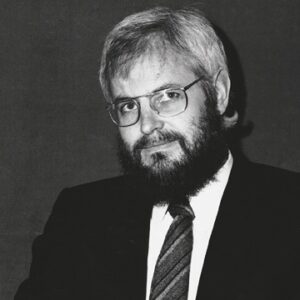Georges J. F. Kohler was a German immunologist and biologist who won the Nobel Prize in Physiology or Medicine for his work on monoclonal antibodies in 1984. Cesar Milstein, a famous immunologist and biochemist, and he split the prize. Kohler had early success in his career. He was only 28 years old when he was chosen for a postdoctoral scholarship at Cambridge’s Laboratory of Molecular Biology. In 1974, Kohler seized the opportunity and traveled to Cambridge. Kohler succeeded in inventing a method of inducing immune system cells to produce pure antibodies against a specific antigen, rather than the plethora of diverse agents that normally greet an invading virus or bacteria, the same year. The discovery of the principle for producing monoclonal antibodies was groundbreaking in science since it aided in illness detection and the delivery of therapeutic medicines to specific bodily areas. Interestingly, despite the fact that Kohler was the driving force behind the finding, as he was involved in the conception and execution of the experiment, he was dismissed by the scientific community, who attributed Milstein with the discovery. His contribution to the development of hybridomas was finally fully recognized in 1984, when he was jointly awarded the Nobel Prize with Cesar Milstein.
Childhood and Adolescence
Georges Jean Franz Köhler was born in Munich, Germany, on April 17, 1946.
After completing his secondary education, he enrolled at the University of Freiburg, where he received his bachelor’s degree in 1971. Kohler applied for a Ph.D. in biology immediately after graduation, which he received in 1974.
The Career of Kohler
Kohler obtained a two-year postdoctoral scholarship at Milstein’s group at the Medical Research Council Laboratory of Molecular Biology in Cambridge, England, after receiving his honorary doctorate.
Kohler worked for Cesar Milstein for two years beginning in 1974. The team achieved the groundbreaking discovery of monoclonal antibodies in 1974.
Monoclonal antibodies, which were pure, homogenous, and extremely sensitive protein molecules used for detecting and treating numerous diseases, opened a new chapter in the history of immunology and immunogenetics.
Kohler discovered that the immune system of the body released a variety of antibodies with the purpose of attaching itself to antigens. The antibodies that resulted from the technique, on the other hand, were never pure and similar.
He reasoned that if he could clone cells and then split them forever in a culture medium, the effect would be the same. He combined lymphocytes with myeloma cells and then engineered them to proliferate endlessly.
The resulting hybrid cells produced a single antibody species. As a result, he was able to develop a potent generic approach for producing pure antibodies to an antigen of interest.
In 1975, Kohler and Milstein presented a report on the discovery of monoclonal antibodies, heralding the arrival of pure, uniform, and extremely sensitive protein molecules to the world. Monoclonal antibodies revolutionized numerous diagnostic methods and led to the discovery of new disease-fighting medicinal medicines.
Kohler relocated to Switzerland in 1976 to continue his monoclonal antibody research at the Basel Institute for Immunology. During his nine years at the Basel Institute, he perfected his technology for generating monoclonal antibodies, albeit he had no intention of commercializing them.
He went one step further by discovering myelomas that allowed the creation of antibody clones from only the spleen cell with which it had been merged.
Throughout the 1980s, Kohler maintained his research on antibody diversity and began using transgenic mice as a tool for understanding the process that underpins self-tolerance.
In 1986, Köhler was appointed to the Max Planck Institute of Immunobiology as a director. Until his death in 1995, he held this role. Kohler broadened his research at the Max Planck Institute to include mechanisms of immunoglobulin expression, B cell development, and the receptors that respond to the hormone interleukin.
He discovered that receptors play a critical role in the human immune response to parasite diseases. He also used knockout mice to investigate the effects of cytokines on immunological responses.
Kohler’s Major Projects
Georges J. F. Kohler is best recognized for discovering the principle behind monoclonal antibody manufacturing. He and Cesar Milstein devised a method of inducing immune system cells to produce pure antibodies against a specific antigen, rather than the plethora of diverse agents that normally greet an invading virus or bacteria.
Monoclonal antibodies were revolutionary in the scientific world since they revolutionized several diagnostic methods and led to the discovery of novel disease-fighting medicinal medicines.
Achievements & Awards
The Nobel Prize in Physiology or Medicine was jointly awarded to Georges J. F. Köhler, César Milstein, and Niels K. Jerne in 1984 “for theories concerning the specificity in the development and control of the immune system and the discovery of the principle for the production of monoclonal antibodies.”
Personal History and Legacy
The pair had three children after Georges J. F. Kohler married Claudia Kohler, a scientist.
Kohler died on March 1, 1995, in Freiburg, Germany, of heart failure at the age of 48.
Estimated Net worth
Unknown.
Trivia
Kohler was the leading force for the hybridoma technique, although Cesar Milstein overshadowed him for the majority of his career. The significance of his role in the discovery of monoclonal antibodies was finally understood in 1984.


